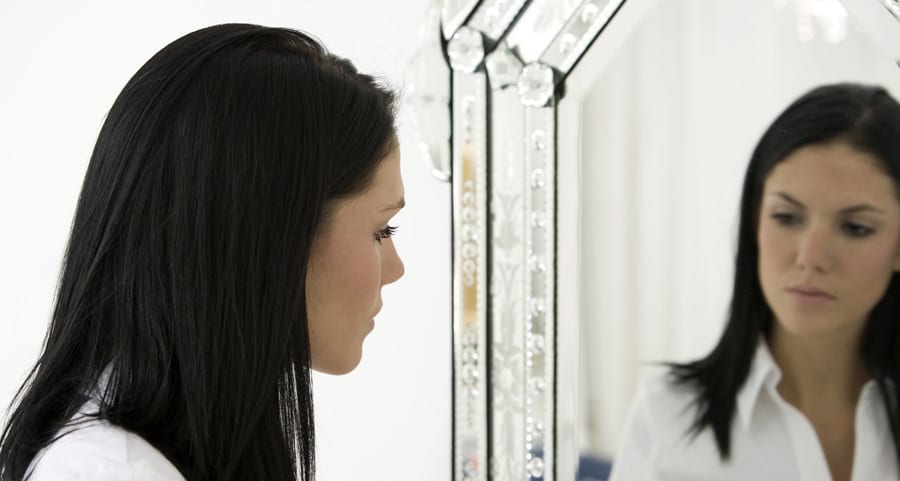The Point of Pain

I love a sermon that gets me thinking. I heard one of those this week. A young Associate Pastor was speaking and the wisdom behind his words seemed more likely the product of someone a couple of decades older than he is. He was talking about being real, authentic, and not covering over the wound, but rather exposing it. He used the medical analogy of having to re-break a bone that was previously broken and has healed over improperly. He talked about the scar tissue that forms on top of the wound. He talked about how no one looks forward to a surgery where the doctor must re-break the bone in order for it to heal properly and not cause other, secondary problems to occur due to the scar tissue and irregular bone material that developed at the point of the original injury.
As I listened to his words, I thought of my work as a psychotherapist. It’s a wonder I have any clients. I only work with brave people. It’s my task to invite my clients to move backwards toward their original pain(s) – back to the point where something broke. Back through the sometimes years worth of scar tissue, or defenses, as we say in my business, that one builds up around and over the wound so it doesn’t hurt so much. I have to warn my clients that I am asking them to venture down a road that is much less traveled than the major thorough way that most choose – the one where the wound is actively and perpetually covered over by alcohol, drugs, eating, spending, humor, violence, sex, altruism, staying busy, talking a lot, being super “religious” – you name it. There are many ways we choose to stay away from our pain. We each choose a few particular defenses that suit our individual personality. They all serve the same purpose, though – to keep us from our pain. And we all have pain to stay away from.
I heard something else really important this week along similar lines (big week for me). It wasn’t a sermon, it was my Senior Pastor’s wife’s testimony at a women’s group. From the moment I realized she was going to be sharing her life story, including the pain, I immediately tuned in and sat rapturously hanging on to each word she spoke. There is no topic of more interest to me than someone’s story – their real story – including the particular brand of pain that makes them who they are today. When she finished, our small group had a hard time pulling words together. It was sacred ground that had been created by her willingness to be so genuinely open and vulnerable. It was her pain that gave her something so special, so important, to share. It was her pain that gave her the dimension and depth that gave us, the audience, permission to consider dropping our facades, our masks, and be more real with each other.
One of sad parts of my work is when someone gets close to the edge of their pain and just starts to contemplate some exploration of it, and then finds some (often unconscious) reason why it just doesn’t make sense to do this work now. I have to trust they will do it another time when they feel ready, but each day that we live a defended life, rather than a reflective, introspective life, seems such a waste. A waste of being able to feel close to others, a waste of our physical heath due to medical problems that arise from having to manage the unexamined internal pain, a waste of the ability to feel truly close to God (knowing He loves us with all of our strengths and struggles).
It’s hard to look at our pain. It means we have to be undone for a while. We have to allow a “chink” in our armor. We have to feel rather insecure for a season. It never seems there is a perfect time to do it. Sometimes we have a nagging sense that the therapy we had in the past was useful, but didn’t go as deep as we would like to go now, or didn’t cover the issues that have surfaced since then. Most often, however, the choice to look at the pain occurs when the pain has gotten so bad we no longer really have the option to ignore it. It forces us to attend to it. Sometimes this happens through an obviously dysfunctional relationship, through a child acting out, through a medical problem, through things falling apart in our place of work, through a substance abuse problem that is ruining our life.
There are some people who choose to perpetually see problems as belonging to others. They blame someone else for their pain. True, most of our point of pain stem from hurts in relationships and there is/has been someone who has abused us, disappointed us, was not properly attuned to us, but ultimately, it is our pain, and it must be our decision to deal with it.
Maybe some useful questions to ask ourselves might be: What pain(s) am I avoiding? What defense(s) do I use to stay away from my pain? What excuse do I have to put off looking at my pain? Here’s wishing you the courage to take a look – we all benefit when one of us makes a choice to embrace our pain. It makes our interactions with one another more healthy, safe, and satisfying – the point of pain.
Published in Personal
Responses